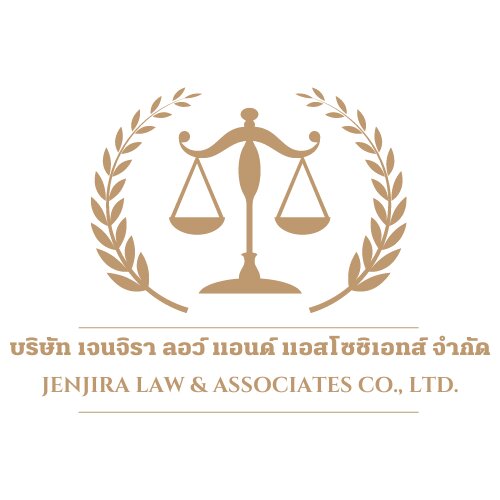Best Faith-Based Law Lawyers in Bang Kapi
Share your needs with us, get contacted by law firms.
Free. Takes 2 min.
List of the best lawyers in Bang Kapi, Thailand
About Faith-Based Law in Bang Kapi, Thailand
Faith-Based Law in Bang Kapi, Thailand, primarily revolves around regulations and practices that accommodate the spiritual and religious beliefs of its culturally diverse population. In this district, known for its vibrant mix of traditions, faith-based law intertwines with the legal system, providing both respect for religious practices and guidelines for how they intersect with secular laws. These laws aim to ensure that the rights of individuals, regardless of their religious affiliations, are upheld while fostering peaceful coexistence and cultural preservation.
Why You May Need a Lawyer
Engaging a legal professional knowledgeable in faith-based law can be crucial in a variety of circumstances. These may include:
- Resolving disputes involving religious practices or belief systems.
- Navigating conflicts that arise between religious doctrine and state laws.
- Setting up religious-based organizations or charitable trusts.
- Interpreting and applying religious laws within family law settings, such as marriage or inheritance.
- Ensuring compliance with both religious guidelines and local legal requirements for events or activities.
Local Laws Overview
Bang Kapi, like many areas of Thailand, must balance national laws with community-specific regulations reflecting local culture and beliefs. Critical points relevant to faith-based law include:
- Religious Freedom: The Thai constitution guarantees freedom of religion, impacting how laws accommodate and interact with different faiths.
- Family Law: Marriages and divorces may be influenced by religious customs, which must be carefully aligned with civil law requirements.
- Property and Inheritance: Distribution of property may incorporate religious guidelines, particularly within families adhering to specific faith traditions.
- Dispute Resolution: Mediations or arbitrations may draw upon religious principles while maintaining adherence to national legal standards.
Frequently Asked Questions
What is Faith-Based Law?
Faith-Based Law refers to legal practices and norms influenced by religious beliefs and practices, often necessitating a unique interpretation and application within the general legal framework.
Is religious worship protected by law in Bang Kapi?
Yes, the Thai constitution protects freedom of worship and religious practice, provided they comply with public order and good morals.
How does religious law affect marriage in Bang Kapi?
While religious ceremonies are recognized, for legal purposes, marriages must be registered with the district office to be officially acknowledged under Thai law.
Can religious doctrines influence inheritance law in Thailand?
Yes, particularly in communities practicing a specific religion, but civil law ultimately governs inheritance unless it is explicitly addressed within recognized religious guidelines and agreed upon by all parties.
Are there specific regulations for faith-based charities in Bang Kapi?
Faith-based charities must adhere to governmental regulations concerning registration, taxation, and operation while aligning their practices with their religious missions.
What should I do if I face a conflict between religious beliefs and secular laws?
Consulting a lawyer with expertise in faith-based law can help navigate these situations to reach a resolution that respects both religious beliefs and legal requirements.
Can legal disputes be resolved through religious arbitration?
Yes, if all parties agree, religious arbitration can be a method of resolving disputes, although decisions are subject to Thai legal standards for enforceability.
Is faith-based education subject to specific legal standards?
Faith-based educational institutions must comply with national education standards while ensuring their curricula reflect their religious values alongside secular education requirements.
Do businesses need to comply with faith-based laws?
While businesses primarily operate under secular law, those serving specific communities may also adhere to particular religious practices, like dietary laws, provided these comply with business regulations.
Who regulates faith-based practices in Bang Kapi?
While local religious authorities oversee specific practices, the intersection with legal matters is generally under the jurisdiction of the public sector and legal professionals.
Additional Resources
For further assistance, consider reaching out to the following organizations:
- The Thai Ministry of Justice for formal legal advice and guidance.
- Local religious councils or bodies for community-specific religious laws and practices.
- Non-governmental organizations focusing on religious rights and legal assistance.
- Legal clinics or services based in Bang Kapi with expertise in faith-based issues.
Next Steps
If you need legal assistance in faith-based law, consider the following steps:
- Research and contact local lawyers specializing in faith-based law.
- Prepare a detailed overview of your legal concerns, including any relevant documents or evidence.
- Consult with community leaders or religious authorities for initial advice before formal proceedings.
- Schedule consultations to discuss potential legal strategies and solutions.
Approaching your case with a clear understanding of both the religious and legal elements in play will help ensure a balanced and fair resolution.
Lawzana helps you find the best lawyers and law firms in Bang Kapi through a curated and pre-screened list of qualified legal professionals. Our platform offers rankings and detailed profiles of attorneys and law firms, allowing you to compare based on practice areas, including Faith-Based Law, experience, and client feedback.
Each profile includes a description of the firm's areas of practice, client reviews, team members and partners, year of establishment, spoken languages, office locations, contact information, social media presence, and any published articles or resources. Most firms on our platform speak English and are experienced in both local and international legal matters.
Get a quote from top-rated law firms in Bang Kapi, Thailand — quickly, securely, and without unnecessary hassle.
Disclaimer:
The information provided on this page is for general informational purposes only and does not constitute legal advice. While we strive to ensure the accuracy and relevance of the content, legal information may change over time, and interpretations of the law can vary. You should always consult with a qualified legal professional for advice specific to your situation.
We disclaim all liability for actions taken or not taken based on the content of this page. If you believe any information is incorrect or outdated, please contact us, and we will review and update it where appropriate.








